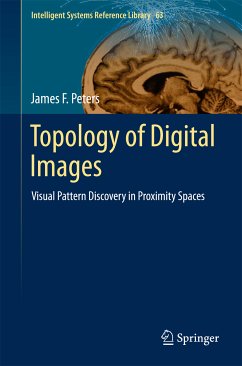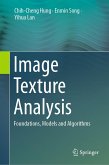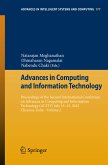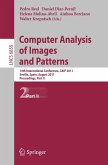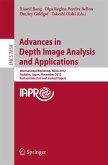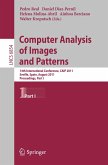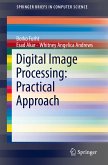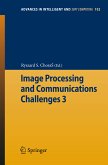This book carries forward recent work on visual patterns and structures
in digital images and introduces a near set-based a topology of digital
images. Visual patterns arise naturally in digital images viewed as sets
of non-abstract points endowed with some form of proximity (nearness)
relation. Proximity relations make it possible to construct uniform topolo-
gies on the sets of points that constitute a digital image. In keeping with
an interest in gaining an understanding of digital images themselves as a
rich source of patterns, this book introduces the basics of digital images
from a computer vision perspective. In parallel with a computer vision
perspective on digital images, this book also introduces the basics of prox-
imity spaces. Not only the traditional view of spatial proximity relations
but also the more recent descriptive proximity relations are considered.
The beauty of the descriptive proximity approach is that it is possible to
discover visual set patterns among sets that are non-overlapping and non-
adjacent spatially. By combining the spatial proximity and descriptive<
proximity approaches, the search for salient visual patterns in digital im-
ages is enriched, deepened and broadened. A generous provision of Matlab
and Mathematica scripts are used in this book to lay bare the fabric and
essential features of digital images for those who are interested in finding
visual patterns in images. The combination of computer vision techniques
and topological methods lead to a deep understanding of images.
in digital images and introduces a near set-based a topology of digital
images. Visual patterns arise naturally in digital images viewed as sets
of non-abstract points endowed with some form of proximity (nearness)
relation. Proximity relations make it possible to construct uniform topolo-
gies on the sets of points that constitute a digital image. In keeping with
an interest in gaining an understanding of digital images themselves as a
rich source of patterns, this book introduces the basics of digital images
from a computer vision perspective. In parallel with a computer vision
perspective on digital images, this book also introduces the basics of prox-
imity spaces. Not only the traditional view of spatial proximity relations
but also the more recent descriptive proximity relations are considered.
The beauty of the descriptive proximity approach is that it is possible to
discover visual set patterns among sets that are non-overlapping and non-
adjacent spatially. By combining the spatial proximity and descriptive<
proximity approaches, the search for salient visual patterns in digital im-
ages is enriched, deepened and broadened. A generous provision of Matlab
and Mathematica scripts are used in this book to lay bare the fabric and
essential features of digital images for those who are interested in finding
visual patterns in images. The combination of computer vision techniques
and topological methods lead to a deep understanding of images.
Dieser Download kann aus rechtlichen Gründen nur mit Rechnungsadresse in A, B, BG, CY, CZ, D, DK, EW, E, FIN, F, GR, HR, H, IRL, I, LT, L, LR, M, NL, PL, P, R, S, SLO, SK ausgeliefert werden.
From the reviews:
"This book presents the recent research results of visual patterns in proximity spaces in a very easy to follow way. ... a research exposition for mathematicians, computer scientists, engineers and for all who want to familiarize with the recent research in this field. It can be also treated as the textbook for students and for all who want to deeply understand images through their topology. It can be used for a self studying and as a course book as well." (Agnieszka Lisowska, zbMATH, Vol. 1295, 2014)
"This book presents the recent research results of visual patterns in proximity spaces in a very easy to follow way. ... a research exposition for mathematicians, computer scientists, engineers and for all who want to familiarize with the recent research in this field. It can be also treated as the textbook for students and for all who want to deeply understand images through their topology. It can be used for a self studying and as a course book as well." (Agnieszka Lisowska, zbMATH, Vol. 1295, 2014)

